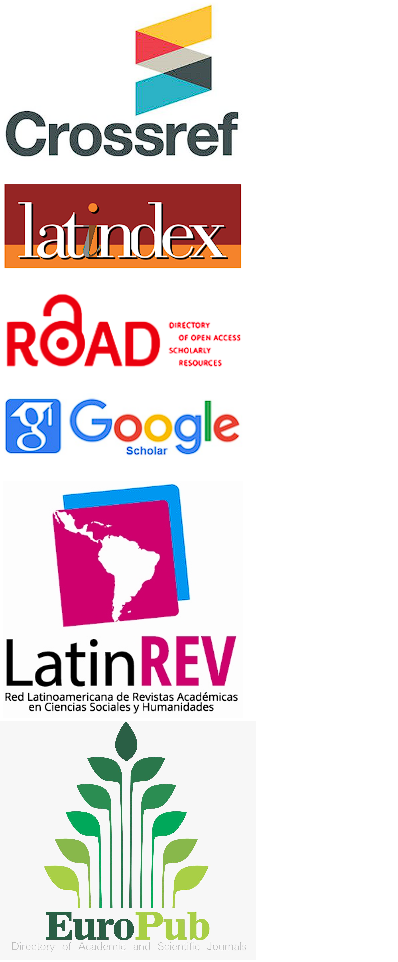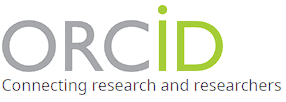Analfabetismo Tecnológico e Informacional en Estudiantes Universitarios de Nuevo Ingreso en México
DOI:
https://doi.org/10.58299/cisa.v6i1.68Keywords:
Alfabetización informacional, Tecnología de la información, Estudiantes universitarios, Educación superior, MéxicoAbstract
Technological and informational illiteracy among first-year university students in Mexico represents a significant challenge for higher education in the digital era. This study examines gaps in digital and informational competencies through a documentary and systemic analysis of recent sources. It reveals a considerable disparity in access to and effective use of information technologies, as well as skills to critically evaluate and utilize information. Results indicate that, despite increased access to devices, significant deficiencies in essential digital competencies persist. The study concludes that there is an urgent need to implement digital and informational literacy programs integrated into university curricula, as well as educational policies that address these deficiencies from previous educational levels, to ensure students develop the necessary competencies for their academic and professional success in an increasingly digitalized world.
References
Alcalá, M. G. (2020). Retos del derecho de acceso a las tecnologías de la información y comunicación para la alfabetización y aprendizaje digital en México durante el COVID-19. Ius Comitiãlis, 3(6), 7-35. http://portal.amelica.org/ameli/journal/137/1371812002/1371812002.pdf
Axhami, L., & Axhami, M. (2023). Use of Information and Communication Technologies as a Medium for Education in Albania. International Journal of Information and Education Technology, 13(12). https://10.18178/ijiet.2023.13.12.2007
Benavot, A., Hoppers, C. O., Lockhart, A. S., & Hinzen, H. (2022). Reimagining adult education and lifelong learning for all: Historical and critical perspectives. International Review of Education, 68(2), 165-194. https://doi.org/10.1007/s11159-022-09955-9
Betancourt, M., Bernate, J., Fonseca, I. & Rodríguez, L. (2020). Revisión documental de estrategias pedagógicas utilizadas en el área de la educación física, para fortalecer las competencias ciudadanas. Retos: nuevas tendencias en educación física, deporte y recreación, (38), 845-851. https://dialnet.unirioja.es/descarga/articulo/7447016.pdf
Delgado Lechuga, G., Gutiérrez García, R. A., & Ortiz, C. (2020). Competencias en uso de Tecnologías de Información y Comunicación: Estudiantes de postgrados a distancia. Revista de Ciencias Sociales. 26, 314-327. https://dialnet.unirioja.es/descarga/articulo/7599948.pdf
Eurydice, E. (2018). Teaching careers in Europe: Access, progression and support. European Commission, Bruxelles. https://doi.org/10.2797/309510
Eurydice, R. (2019). Digital Education at School in Europe. Audiovisual and Culture Executive Agency-EACEA. https://doi.org/10.2797/763
Instituto Nacional de Estadística y Geografía (INEGI). (2023). Encuesta Nacional sobre Disponibilidad y Uso de Tecnologías de la Información en los Hogares (ENDUTIH) 2023. https://www.inegi.org.mx/programas/endutih/2023/
Instituto Nacional de Estadística y Geografía (INEGI). (2024). Encuesta Nacional sobre Disponibilidad y Uso de Tecnologías de la Información en los Hogares (ENDUTIH) 2024. https://www.inegi.org.mx/contenidos/saladeprensa/boletines/2024/ENDUTIH/ENDUTIH_23.pdf
Joyanes, L. (2017). Industria 4.0: la cuarta revolución industrial. Alpha Editorial. https://bit.ly/4cCYvjy
Keidanren. (2018). Society 5.0: Co-creating the future (Excerpt). https://www.keidanren.or.jp/en/policy/2018/095_proposal.pdf
Maldonado, C., Marinho, M. L., & Robles, C. (Eds.). (2020). Inclusión y cohesión social en el marco de la Agenda 2030 para el Desarrollo Sostenible: Claves para un desarrollo social inclusivo en América Latina. Comisión Económica para América Latina y el Caribe (CEPAL). https://hdl.handle.net/11362/45728
Martínez-Navarro, J. A. La competencia digital de los estudiantes universitarios latinoamericanos.(2020). International Journal of Educational Research and Innovation (IJERI), 14, 276-289. https://doi.org/10.46661/ijeri.4387
OECD. (2019). OECD Skills Strategy 2019: Skills to Shape a Better Future. OECD Publishing, Paris. https://doi.org/10.1787/9789264313835-en
Pelletier, K., McCormack, M., Muscanell, N., Reeves, J., Robert, J., y Arbino, N. (2024). 2024 EDUCAUSE Horizon Report: Teaching and Learning Edition. EDUCAUSE. https://library.educause.edu/resources/2024/5/2024-educause-horizon-report-teaching-and-learning-edition
Ramírez-Montoya, M. S., & Lugo-Ocando, J. (2020). Systematic review of mixed methods in the framework of educational innovation. Comunicar, 28(65), 9-20. https://doi.org/10.3916/C65-2020-01
Romero-Rodríguez, J. M., Ramírez-Montoya, M. S., Aznar-Díaz, I., & Hinojo-Lucena, F. J. (2020). Social appropriation of knowledge as a key factor for local development and open innovation: A systematic review. Journal of Open Innovation: Technology, Market, and Complexity, 6(2), 44. https://doi.org/10.3390/joitmc6020044
Romero-Rodríguez, L. M., Ramírez-Montoya, M. S., & González, J. R. V. (2020). Incidence of digital competences in the completion rates of MOOCs: Case study on energy sustainability courses. IEEE Transactions on Education, 63(3), 183-189. https://doi.org/10.1109/TE.2020.2969487
Schwab, K. (2017). The fourth industrial revolution. Crown Currency. https://bit.ly/4cIcJ2C
Sala, A., Punie, Y., & Garkov, V. (2020). LifeComp: The European Framework for personal, social and learning to learn key competence: European Commission. https://doi.org/10.2760/302967
Solimine, G., Marzal Garcia-Quismondo, M.A. (2020). Proposal of Visual Literacy Indicators for competencies courses. An academic literacy perspective for academic excellence. JLIS: Italian Journal of Library, Archives and Information Science (Rivista italiana di biblioteconomia, archivistica e scienza dell'informazione). 11(1), 17−35. https://doi.org/10.4403/jlis.it-12577
Toudert, D. (2022). Brecha digital y contextos de marginación en México: una década de evolución. Cuadernos.info, (53), 318-337. https://doi.org/10.7764/cdi.53.37763
UNESCO Institute for Information Technologies in Education. (2019). Proceedings of the Ministerial Forum: Global Dialogue on ICT and Education Innovation – Towards Sustainable Development Goal for Education (SDG 4). https://bit.ly/4g0lPKU







